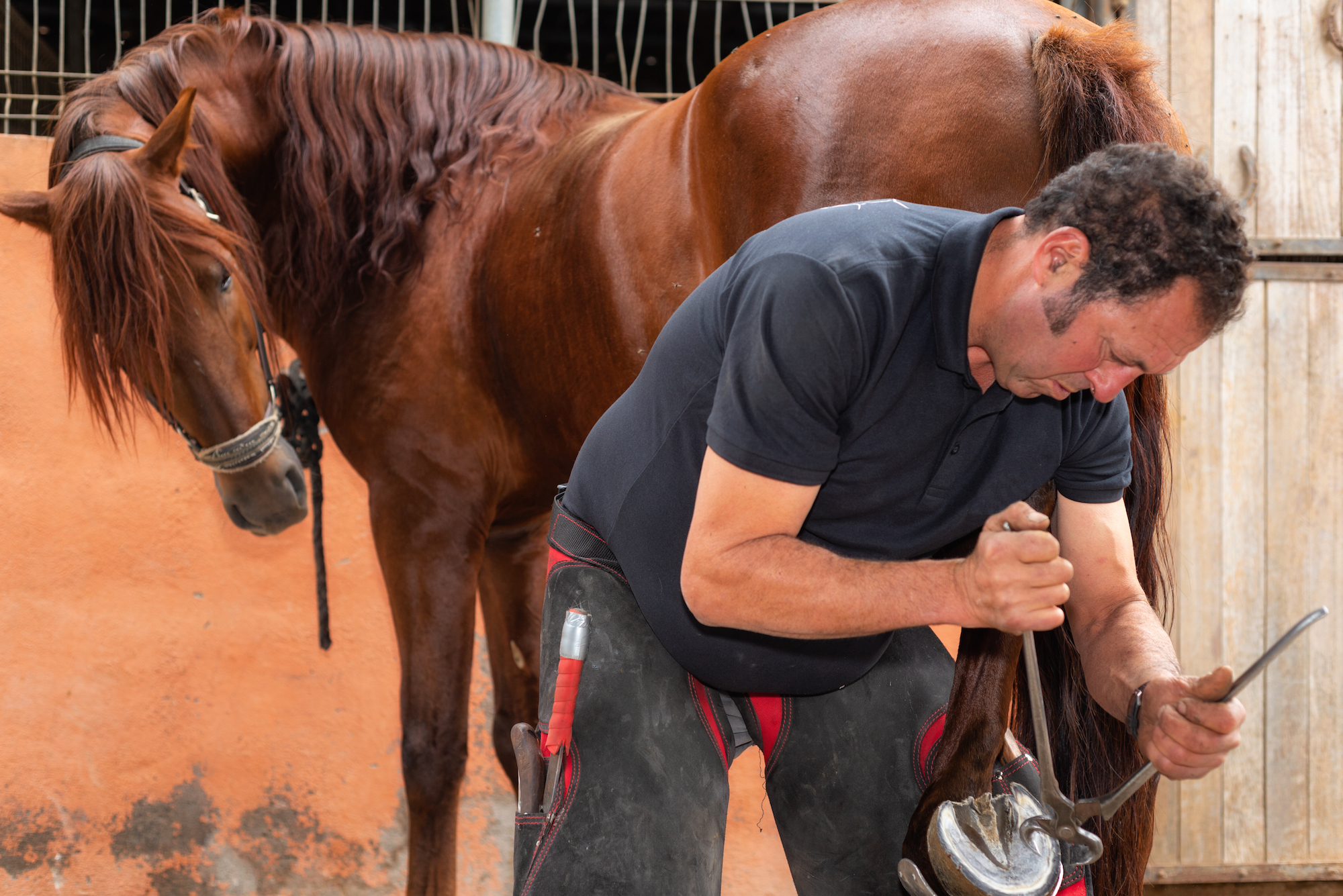
An apprentice farrier helps use various tools to care for the feet of horses, donkeys, and mules and make and repair horseshoes.
Farriers discuss the horse’s shoeing requirements with the owner, evaluating the horse’s leg, foot, and hoof, cutting away any additional hoof growth and ensuring the animal is balanced correctly,
Farriers produce horseshoes by hand or machine, and fitting the horseshoes with a hammer and anvil is all part of the work. You might also work with veterinarians and horse hospitals to provide corrective shoeing and surgical farriery.
Responsibilities
Throughout your apprenticeship, you may help:
- talk to the horse owner about what work is required
- check the horse’s legs, feet and hooves for problems
- cut away excess hoof growth and make sure the horse is properly balanced
- choose suitable shoes for the horse’s size, foot condition and type of activity
- make horseshoes by hand or on a machine
- shape shoes, using a hammer and anvil
- fit horseshoes
- make final checks to finish.
Salary
Starting salaries for apprentice farriers in the UK tend to be £16,000 a year. Experienced farriers can earn £30,000 and sometimes more.
Working hours and environment
Farriers are often self-employed, which means that your working hours will be dictated by your customers’ needs and may include some weekends. You may have to travel long distances to customers’ homes, riding schools, or stables. A driver’s licence and a vehicle capable of hauling a mobile workshop, stock, and tools are required. You’ll be working outdoors in all kinds of weather.
Qualifications
Qualifications you can achieve as an apprentice farrier include:
Level 3 Farrier – Entry requirements for this level include 4 or 5 GCSEs at grades 9 to 4 (A* to C), or equivalent, including English, maths and science.
This takes 48 months to complete and includes training on the job and periods of study at a college approved by the Farriers Registration Council.
Skills
On a farrier apprenticeship, you’ll learn:
- to be thorough and pay attention to detail
- the ability to work well with your hands
- excellent verbal communication skills
- thinking and reasoning skills
- the ability to work on your own
- the ability to operate and control equipment
- customer service skills
- patience and the ability to remain calm in stressful situations
- to be able to carry out basic tasks on a computer or hand-held device.
Career path and progression
A job as a farrier opens up a variety of professional opportunities. Many farriers work full-time for big stables, horse breeders, or mounted police or army units; however, you might also work with veterinarians in equine hospitals or for a farriery supply firm.
You might also work as an Approved Training Farrier (enabling you to employ and train apprentice Farriers), lecturer, or farrier consultant in education.
Because all trained farriers are required to engage in continuous professional development (CPD), opportunities for further education abound. Qualified farriers, for example, may apply for Associateship and Fellowship with the Worshipful Company of Farriers. In addition, if you can study part-time, you could study for the Foundation Degree in Farriery at Myerscough College (Preston).
